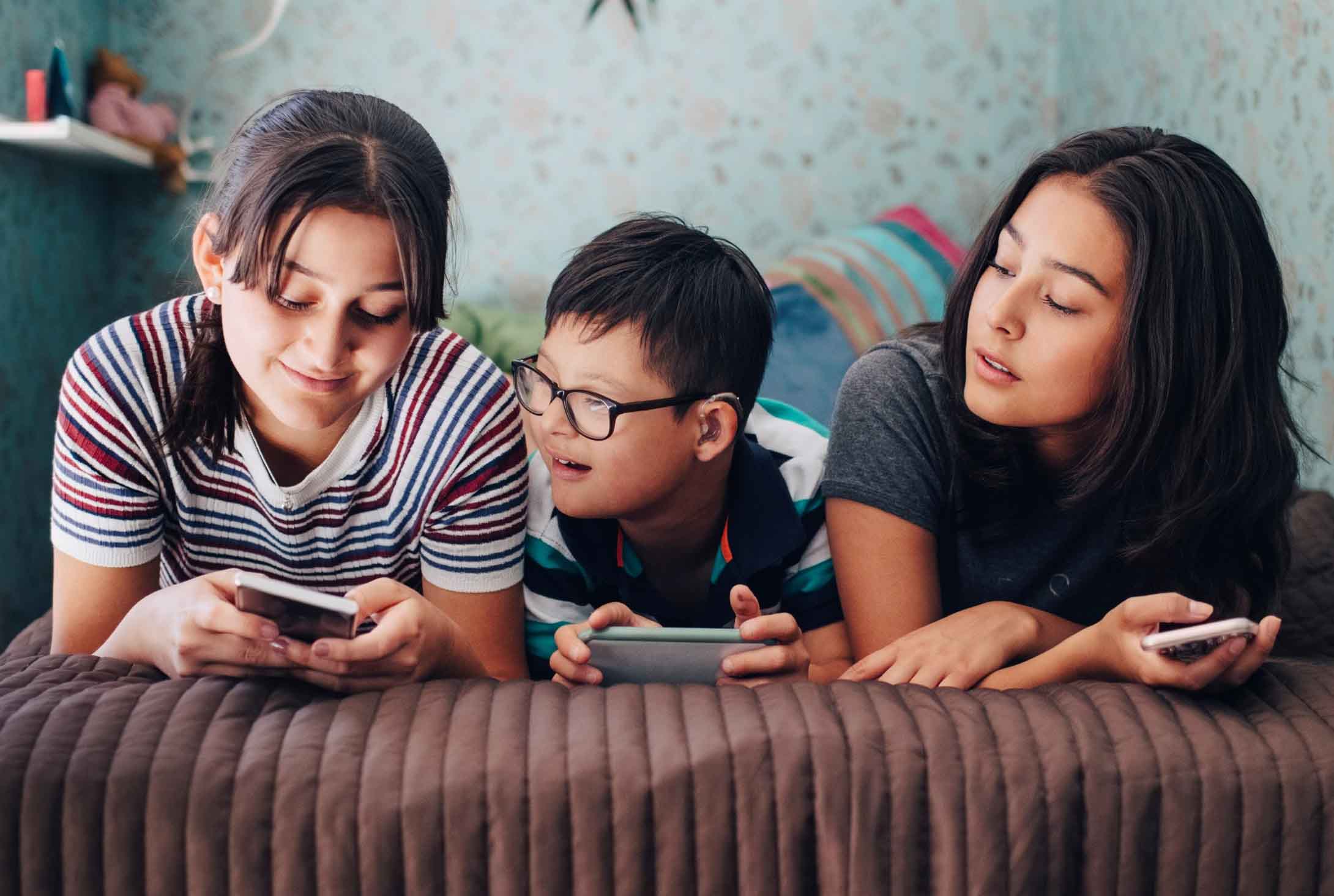Coping with Teens and Screens
by Aletha Solter, Ph.D.
Click here for a one-page printable version for free distribution to parents.
Spanish version: Cómo lidiar con los adolescentes y las pantallas

The following tips are for parents who are concerned about their children's use of electronic devices (phones, video games, social networking, etc.).
Not all screen use is bad. Electronic devices can help meet children s (and adults ) needs for stimulation, information, connection, communication, and entertainment.
However, screen use can be problematic. Screens are captivating. One risk is the potential for addiction, which can interfere with teens school performance, relationships, and health. Social networking can be a source of misinformation and can be used in hurtful ways such as bullying and ostracizing. The ease of taking and sharing photos can lead to beauty contests for girls, as well as pressures to text or post nude photos. Pornography can replace healthy sex education. Parents also worry about violent video games and the risk of online acquaintances.
Tips for parents
- Be a good role model. You can expect your children to imitate you, so try to be aware of how and why you yourself use screens. Let your children see you doing other activities.
- Be aware of your own feelings and needs. How do you feel when your children use their devices? Are any of your needs being met (such as time for yourself)? Are any of your needs not being met (such as time to connect with your children)?
- Avoid an authoritarian approach. Punishment may work temporarily, but it will damage your relationship with your children and cause them to hide their screen use from you. Even nonpunitive limits may be inappropriate, because the goal is to help children develop self-control and become self-regulated. An attitude of support, trust, and mutual problem solving will be more effective, in the long run, than efforts to control their screen use.
- Discuss your concerns and reach a mutual agreement. Share your feelings with your children, and listen to their feelings. Explain the risk of trusting people they meet online. Aim for a mutual agreement about screen use rules, and have a written contract.
- Try an experiment. Discuss addiction, and suggest having one day with unlimited screen time and one day with no screen time (for the entire family). Share feelings afterwards.
- Look for underlying needs for your children s screen use, and find other ways to meet their needs for stimulation, information, connection, communication, or entertainment.
- Look for underlying problems. For example, boys tend to socialize around video games, but solitary play may be a symptom of social problems. If your child frequently plays video games alone, and has no friends, look for an after-school activity where he can meet people.
- Show interest in your children s screen activities. Be aware of what they are doing (and with whom), and find ways to connect with them while they are using their devices. Offer to play their favorite video games with them. Ask permission to see photos they (or their friends) have posted. Find out what they like or dislike about various screen activities.
- Spend time with your children away from electronic devices. Look for ways to stay connected. Never assume that they are too old for family activities such as game nights (not video games), sports, excursions, or creative projects. Have interesting discussions with them. Ask about their friends, school, interests, goals, and opinions. Listen to them.
- Seek professional help. If you suspect serious problems, find a professional therapist for your child. Some teens become targets of cyber bullying or sexual predators. Some develop a screen addiction to cope with stress, anxiety, depression, or trauma.
Interview with Aletha Solter, Ph.D. about screen use in younger children
About Aletha Solter
Aletha Solter, PhD, is a developmental psychologist, international speaker, consultant, and founder of the Aware Parenting Institute. Her books have been translated into many languages, and she is recognized internationally as an expert on attachment, trauma, and non-punitive discipline.
Aware Parenting is a philosophy of child-rearing that has the potential to change the world. Based on cutting-edge research and insights in child development, Aware Parenting questions most traditional assumptions about raising children, and proposes a new approach that can profoundly shift a parent's relationship with his or her child. Parents who follow this approach raise children who are bright, compassionate, competent, nonviolent, and drug free.
For more information about parenting teenagers (and younger children), see Aletha Solter's book, Raising Drug-Free Kids.
Related articles:
